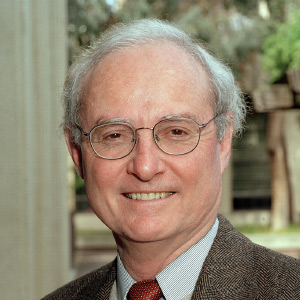The Organization of American States (OAS) grabbed headlines on June 28 when it became the international point-organization for dealing with the “coup” in Honduras that ousted President Manuel Zelaya.
One might have expected the OAS to launch immediate consultations between the two sides to reduce the prospects for violence and seek some common ground and resolution of the differences. But no, from the beginning under the macho leadership of Secretary General José Miguel Insulza it chose confrontation and ultimatums. This was what Venezuelan President Hugo Chavez and his OAS supporters wanted, for Zelaya was one of them, and all OAS member states went along with the basic policy. As Alvaro Vargas Llosa wrote in The Washington Post, Insulza and the OAS have “acted like Venezuela’s poodle.”
All OAS members denounced the new “anti-democratic” and “un-constitutional” Honduran government and demanded Zelaya’s immediate and unconditional restoration, though some member states balked at imposing such secondary policies as mandatory sanctions. The OAS said on July 1 that if Zelaya was not reinstated within three days Honduras would be expelled from the OAS. But the new government quit first.
On July 5, with surpassing bravado, Zelaya tried to fly back to the country. As the plane Chavez had provided was nearing Tegucigalpa, the ousted president broadcast that “the blood of Christ is coursing through my veins” and “soon I will be with you all to raise the crucifix.” The Honduran government blocked the airport runways, so Zelaya flew dramatically into El Salvador to rally with Insulza and several Chavista presidents.
This Son-of-God-ly stunt set off violence in Tegucigalpa and brought the first and so far only death of the crisis period. By mid-July Zelaya was proclaiming the people have “a right to insurrection.”
After ten days of OAS failure to do anything but make conditions worse, off-and-on U.S.-organized conversations between the two sides began, mediated by Costa Rican President and Nobel peace laureate Oscar Arias. The second round is to be scheduled for Saturday, July 18.
The first thing to understand in the Zelaya affair is that the ousting was a traumatic affair, but not a crisis, until the OAS butted in on June 28. As Honduran lawyer Octavio Sanchez has pointed out, when then-president Zelaya issued his decree ordering an opinion poll on changing presidential terms he “triggered a constitutional provision [ Art. 239] that automatically removed him from office.” He had been repeatedly warned of this by the Supreme Court. Congress confirmed his removal from power, but only after he outed himself.
The military arrested him, which was legal (Art. 272), though it was a political mistake because it gave the appearance of a military coup, especially when they forcibly exiled him to Costa Rica. This appearance has been manipulated relentlessly by the ideologues—who want Zelaya back in office to pursue his populist agenda—and is tolerated by the sheep.
If the Honduran Constitution was good enough to allow Honduras to be a member of the OAS in the first place, even with its strict prohibition of multiple presidential terms, which makes sense in the national context, then it can not be un-constitutional to remove Zelaya because he repeatedly violated it. In judging the Honduran case, OAS “diplomats” can’t have it both ways, professing their unshakeable dedication to Constitutions and the rule of law even as they militantly make a hero of a country’s No. 1 lawbreaker who took himself out as a result of his actions.
The result of the confrontational OAS policy has been to greatly aggravate the Honduran domestic situation. Honduras is poor and there is a deep divide between the poor, many of whom support Zelaya, and the middle and upper classes, who have opposed his turn toward Chavista authoritarian populism.
This still unresolved incident demonstrates clearly that the OAS does not have what it takes to deal objectively and constructively with a regional crisis. Either the “diplomats” at the OAS are shamefully ignorant of the facts of Honduras or their honesty and objectivity are compromised by the sulfurous brew of ideology, intimidation, and apparent ignorance that twist their basic positions in tough political situations.
A similarly strong pro-Chavista bias was evident during the confrontation between Colombia and Ecuador in early 2008, whether then, as now, it was based on ignorance of reality or intimidation—not wanting to seem less “left-wing” or “progressive” or “democratic” than the glib populists of the Chavista camp who so successfully play to the popular frustrations of the entire continent, not just Honduras.
Unless moderate member states want the OAS to be officially renamed Organization of American Sheep, they are going to have to stand up to the openly partisan Chavistas, though not by becoming slavishly pro-Washington. Some guidelines:
- Follow the oft-stated but increasingly violated OAS directive not to interfere in the domestic affairs of member nations.
- If you don’t know what is happening around the world, get better sources of information. At the very least don’t make unconditional demands and issue sanctions against a country when you don’t have a clue what is going on there.
- Recognize that governments and constitutions of individual countries are intended to serve the needs of the people residing therein, with their differing histories and traditions. Most in Latin America serve elites much more faithfully than majorities.
- Don’t let partisan politicians hijack the organization. The way to deal with Chavistas today is not to cave into their own un-constitutional ravings in the OAS—that is, by being sheep—but by making all countries more responsive to their people, each “diplomat” beginning with his own.
- If you can’t tell a constitutional change from a military coup, or draw other such ignorant or ideological political distinctions, then quit politics and political analysis and become a gardener or metaphysical poet.
Few of Latin America’s banana republic politicians of recent weeks have been in Tegucigalpa. The have included Zelaya, Insulza and Chavez, but above all the moderate members of the OAS, without whose complicity the Organization of American Sheep could not have undertaken its dishonest and destructive policies.








